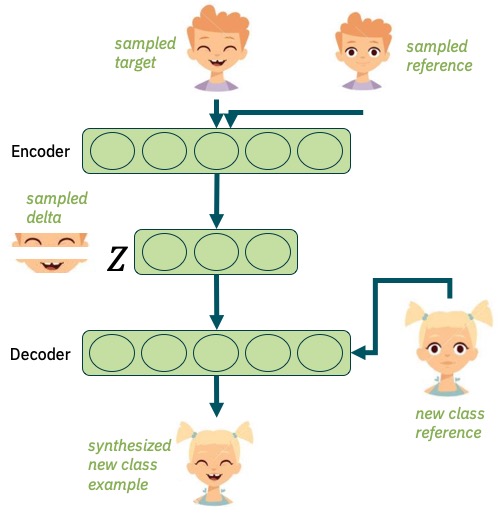Delta-encoder: an effective sample synthesis method for few-shot object recognition
Learning to classify new categories based on just one or a few examples is a long-standing challenge in modern computer vision. In this work, we proposes a simple yet effective method for few-shot (and one-shot) object recognition. Our approach is based on a modified auto-encoder, denoted Delta-encoder, that learns to synthesize new samples for an unseen category just by seeing few examples from it. The synthesized samples are then used to train a classifier. The proposed approach learns to both extract transferable intra-class deformations, or "deltas", between same-class pairs of training examples, and to apply those deltas to the few provided examples of a novel class (unseen during training) in order to efficiently synthesize samples from that new class. The proposed method improves over the state-of-the-art in one-shot object-recognition and compares favorably in the few-shot case. Upon acceptance code will be made available.
PDF Abstract NeurIPS 2018 PDF NeurIPS 2018 Abstract







 ImageNet
ImageNet
 CIFAR-100
CIFAR-100
 CUB-200-2011
CUB-200-2011
 Caltech-256
Caltech-256
 AwA2
AwA2
 aPY
aPY
